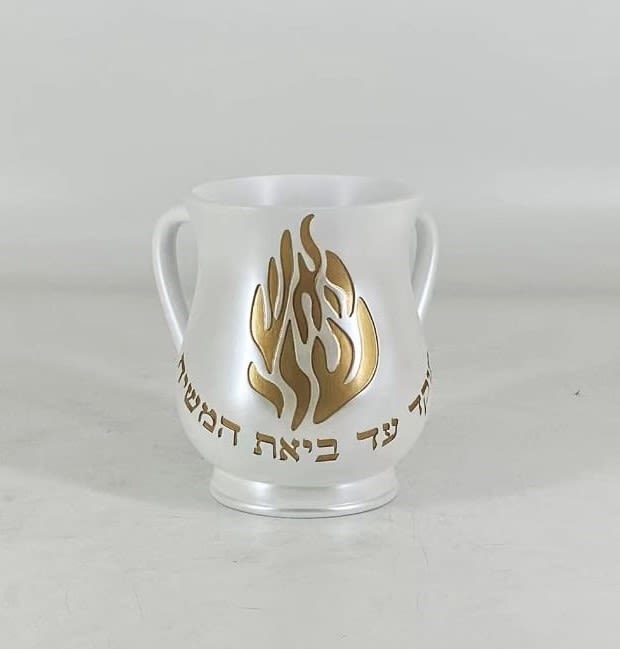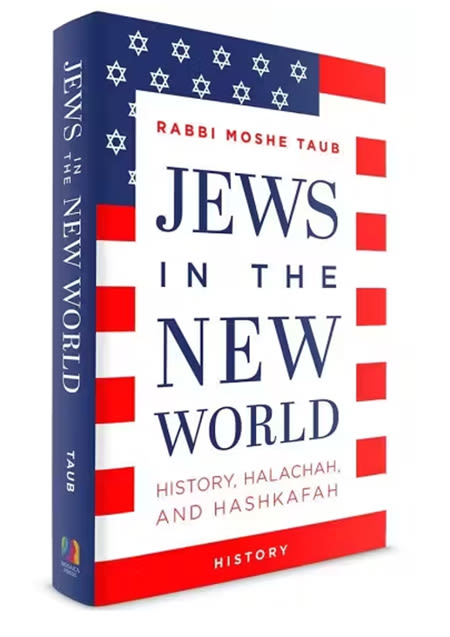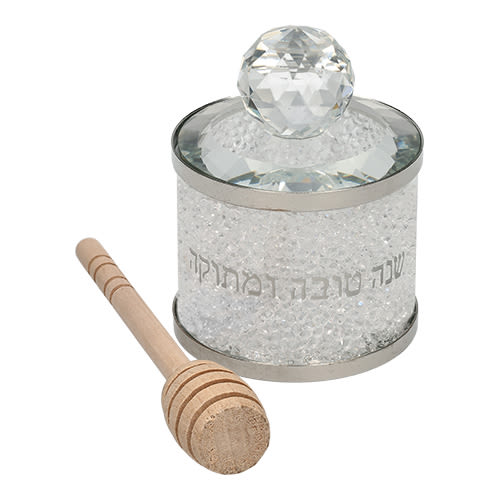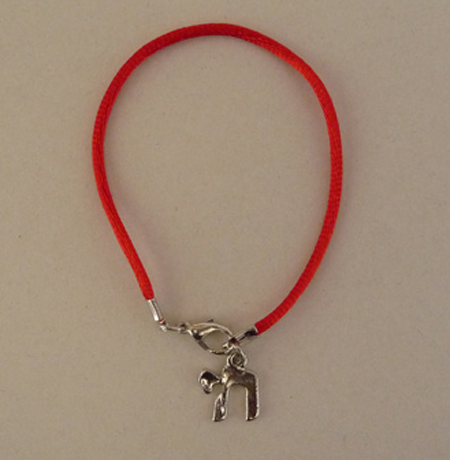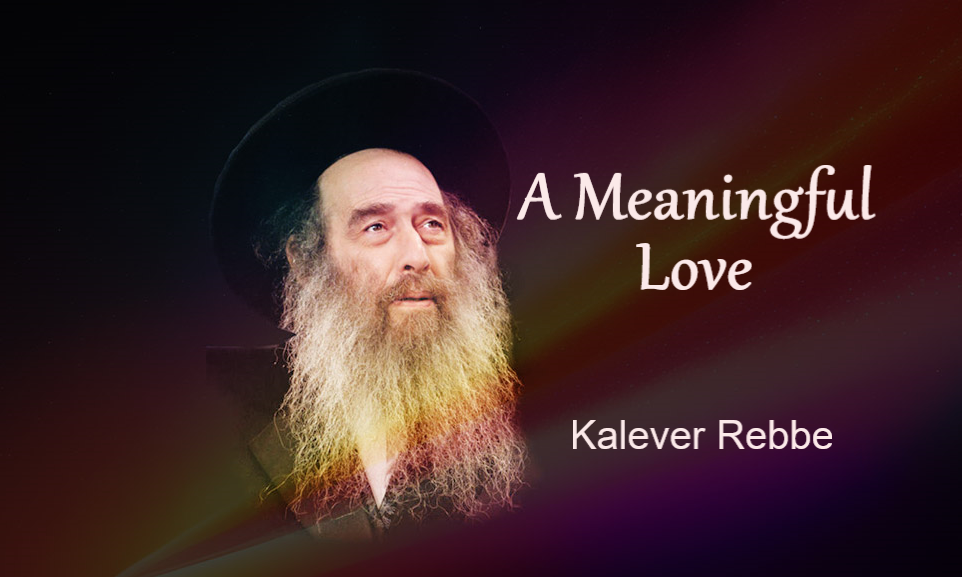
A Meaningful Love
The bond between a Jew and a non-Jew is not one of everlasting love. Happiness can only come from building a Jewish home together with a true-life partner.

“And Esau saw that the daughters of Canaan were displeasing in the eyes of his father Isaac” (Bereishit 28:8)
They Will not Forget You Are a Jew
There is a story about the Rebbe, R’ Avraham Yehoshua Heshil of Kapitschnitz z”l. In the first years after the Holocaust, intermarriage was common. Often parents from various cities would come to the Rebbe and express their grave concerns about how their sons wanted to intermarry and assimilate into the non-Jewish culture.
On countless occasions, the Rebbe would tell these sons the following story that took place in Vienna during the Holocaust:
At the beginning of the war, the Rebbe was captured by the Nazis and held in a prison in Vienna. This prison became the central location where the Nazis would hold Jews they rounded up until they were processed and sent elsewhere.
One day, a yid arrived at the prison. He was severely injured – he was covered with bruises from head to toe from the beating the Nazis gave him. When he saw the Rebbe, he came running over hysterically screaming and crying.
When this yid finally calmed down enough to speak, he explained to the Rebbe: “I spent my entire life assimilating; trying to hide my Jewish roots. I married a non-Jewish woman and lived in a remote little town, far away from any Jewish community. My wife and I were married and living in this town for 40 years! And it was my wife who turned me into the Nazis!”
Later, after the war had ended, the Rebbe would often say that all those years he suffered was worthwhile if only to be able to tell this story to other yidden. This story had helped the Rebbe encourage and inspire other yidden after the war to flee from the temptation to intermarry and assimilate.
Where was Your Wife?
Another similar story is told by the Klauzenberger Rebbe.
Before the Holocaust, the president of the Central Bank of Hungary was an assimilated Jew. At the outset of the war, there was a tremendous financial crisis looming for Hungary and this Jew was able to stabilize the country’s economy. He was well known by all the leaders in the government and business community. However, when the Nazis came into Hungary, they rounded him up with the other Jews. Not one of his associates or friends came to his aid. His non-Jewish wife also turned her back as he was sent away to Auschwitz.
In Auschwitz, this banker met the Klauzenberger Rebbe, who wanted to help inspire this yid to return to Hashem. And he asked him, “Tell me, when you were facing a life-or-death situation, when the Nazis rounded you up, where were all your Hungarian friends? Where were the countless government officials to which you were connected? Where was your wife? Why did she abandon you to this horrible fate?”
The yid sat there in silence for a few moments and then answered: “Rebbe, I have thought about what you asked me, and I realize now the foolishness of my ways and the emptiness of my life until now. When I leave this place, I will live a life of a yid committed to Torah and Mitzvot. I will marry a true bat Yisroel, a Jewish woman.”
These stories are not isolated incidents. Throughout the Holocaust, the Jews who had lived assimilated lives, forgot their Jews roots and tried to blend into their host cultures, were rounded up with the rest of the yidden. Even their wives would abandon them, because the tie between a Jew and a non-Jew is not a true tie with a true everlasting love.
On the simplest level, this is because in his inner depths, in his heart, Esau despises Yaakov. A hate that was born and has carried through ever since throughout the generations. However, there is another reason as well:
Everlasting Love
Usually, when a yid marries outside of the faith, he is tempted by an external love. He is attracted to the way the woman looks and dresses, the culture she is associated with, external passions and lifestyles. However, their relationship is not based on anything deep or meaningful. They do not explore their relationship to see if there is a true match, a love built on shared values. They are only filling in a void with a self-serving love, a love that is built on external attractions. A false love.
The Kotzker Rebbe once saw a man eating fish and this man said, “I love fish!” The Rebbe asked him: “If you really love fish, how can you murder it, chop it up into little pieces, and then chew on it? What kind of love is that? Clearly, you don’t love fish, you love yourself! You love how you enjoy fish!”
Pirkei Avot (5:16) teaches: “All love that is dependent on something, when that thing no longer exists, the love will no longer exist. What is a “love” that is dependent on something? Like the love between Amnon and Tamar.”
Amnon’s love for Tamar was an external love. Once his desires were filled, once he no longer was attracted to Tamar, he grew to hate her and banished her.
Find a True Partner
A yid must be meticulous when looking for a life partner, a true zivug. He must look for a woman who is modest in her dress and behavior, has beautiful middot (character traits) that run deep. A woman who lives a life deeply grounded in emunah, faith in Hashem and His Torah. This is the type of woman who can build a proper Jewish home, where that faith can permeate, where Torah and Mitzvot can take hold, where the couple can raise children radiating with ahavat and yirat Hashem, both love and fear of Hashem. Where yiddishkeit can be not only observed but celebrated with warmth, love, and an excitement. These are the qualities that individuals should seek in their life partner.
The Mishnah in Taanit (4:8) teaches: And the daughters of Jerusalem would go out and dance in the vineyards. And what would they say? Young man, please lift your eyes and see what you choose for yourself for a wife. Do not set your eyes toward beauty, but set your eyes toward a good family, as the verse states: “Grace is deceitful and beauty is vain, but a woman who fears the Lord, she shall be praised” (Proverbs 31:30).
With this perspective, you can find a true partner in life, a spouse who can help you grow, to build a home of Jewish values. As Rebbe Meir HaMiri explains in his commentary on Mishlei (31:10): “What is a good wife? A woman who respects her husband, through good times and bad, through their youth and their old age.”
His Father’s Example
This is what our pasuk here is teaching us:
“Esau saw that the daughters of Caanan are bad”. Esau saw the truth, he saw that these immodest women were promiscuous, that they lacked the qualities that define a good Jewish wife. They were not the appropriate match for marriage.
And the pasuk explains how Esau saw this: “in the eyes of Yitzchak his father”. Even though his father was old and frail, Esau saw in his eyes a glow, a ‘simchat hachaim‘, a happiness that could only come from a happy life of building a Jewish home together with a true-life partner. He recognized that this is because his father did not yield to the temptation to marry an immodest Canaanite woman. Rather, he married the modest Rivkah, a true bat Yisroel, who filled his life with true love and joy in his younger years as much as in his later years.






